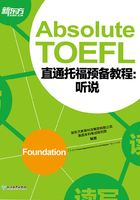
Part 2 Lecture: Matriarchy
Vocabulary U1-V-L2
U1-V-L2



Vocabulary Exercises
I. Fill in the blank with the most appropriate word, pluralizing the word or changing the verb tense if necessary.
patriarchy social system power society matriarchy political descent property
marry ability indigenous somewhat equal overturn army
1. My cousin is getting_____this Sunday.
2. There are several different_____groups in this country.
3. He has a lot of_____to make decisions in the company.
4. Tina is of Russian and English_____.
5. I was_____surprised that Neil didn’t come to our party.
6. My father was part of the American_____when he was younger.
7. That family owns_____all around the city.
8. A society that is controlled by men is a_____.
9. The two men are competing for_____power.
10. My sister has the_____ to speak four languages.
II. Match the word with its Chinese definition.


Lecture

I. Listen to a part of a lecture and check off the things that you hear the professor talk about. U1-L-P1
U1-L-P1
__China
__women
__sandwich
__family
__brother
__money
__father
__car
II. Listen to the following lecture and take notes if needed. U1-L-P2
U1-L-P2
_______________________________________
III. Select the correct answers for the following questions.
1. What is the lecture mainly about?
a) the differences between patriarchy and matriarchy
b) different matriarchal societies
c) the history of matriarchal societies
d) the advantages of a matriarchy
2. What does the professor say about patriarchy?
a) It is a social system where women have little power.
b) It has a longer history than matriarchy.
c) Most societies today are patriarchal.
d) It is more dangerous than matriarchy.
3. Which of the following is true about matriarchies? Select 2 answers.
a) Descent is through the women.
b) Men can only make decisions within the family.
c) There are many societies that are completely matriarchal.
d) Property is passed through women.
4. Why are the Mosuo not completely matriarchal?
a) because Mosuo people do not get married
b) because only the oldest woman in the family makes decisions
c) because Mosuo men make all political decisions
d) because Mosuo men choose when to have children
5. How is the next Rain Queen chosen?
a) The queen chooses someone she likes.
b) She must show that she has special abilities.
c) She is chosen from a nearby village.
d) She is the oldest daughter of the queen.
6. What is one way that the Hopi are somewhat matriarchal?
a) Hopi women take part in politics.
b) The Hopi have no army.
c) All Hopi women can overturn the decisions of important men.
d) The Clan Mother is the leader of Hopi society.
IV. Read the sentences. Are they true (T) or false (F)?
1. Matriarchal societies are common around the world._____
2. Researchers have never found a fully matriarchal society._____
3. In Mosuo families, the mother makes all of the family decisions._____
4. Mosuo women and men raise their children together._____
5. People believe that the Rain Queen of South Africa can control the rain._____
6. The Rain Queen receives wives as gifts._____
7. The Hopi believe that women are better than men._____
8. The Hopi have only a small army._____
Functional Vocabulary
